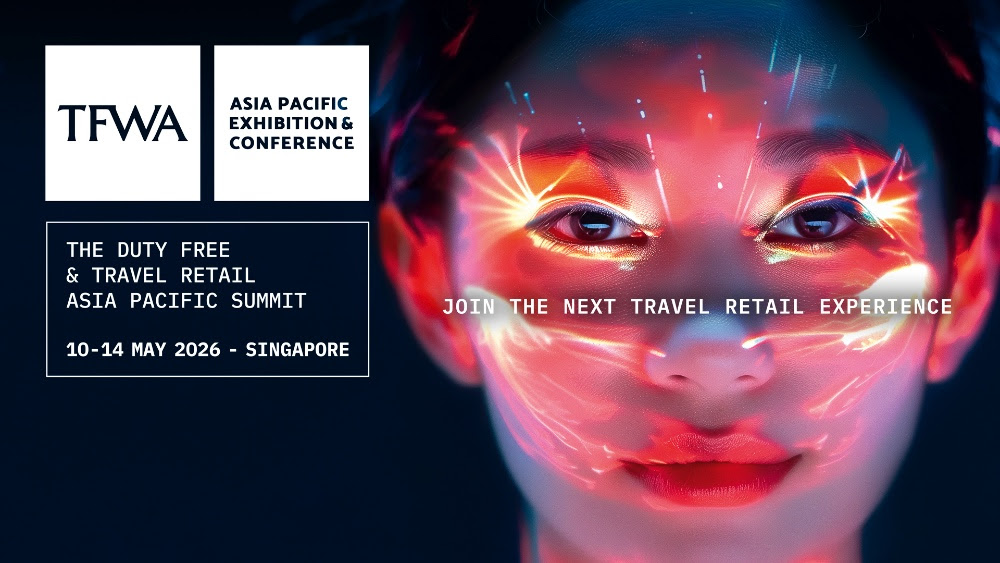September 29, 2025
On location: TFWA Cannes conference segment highlights themes of resilience and growth
TFWA President Philippe Margueritte took the stage on day one of the 2025 TFWA Cannes World Exhibition & Conference to deliver a state of the industry address
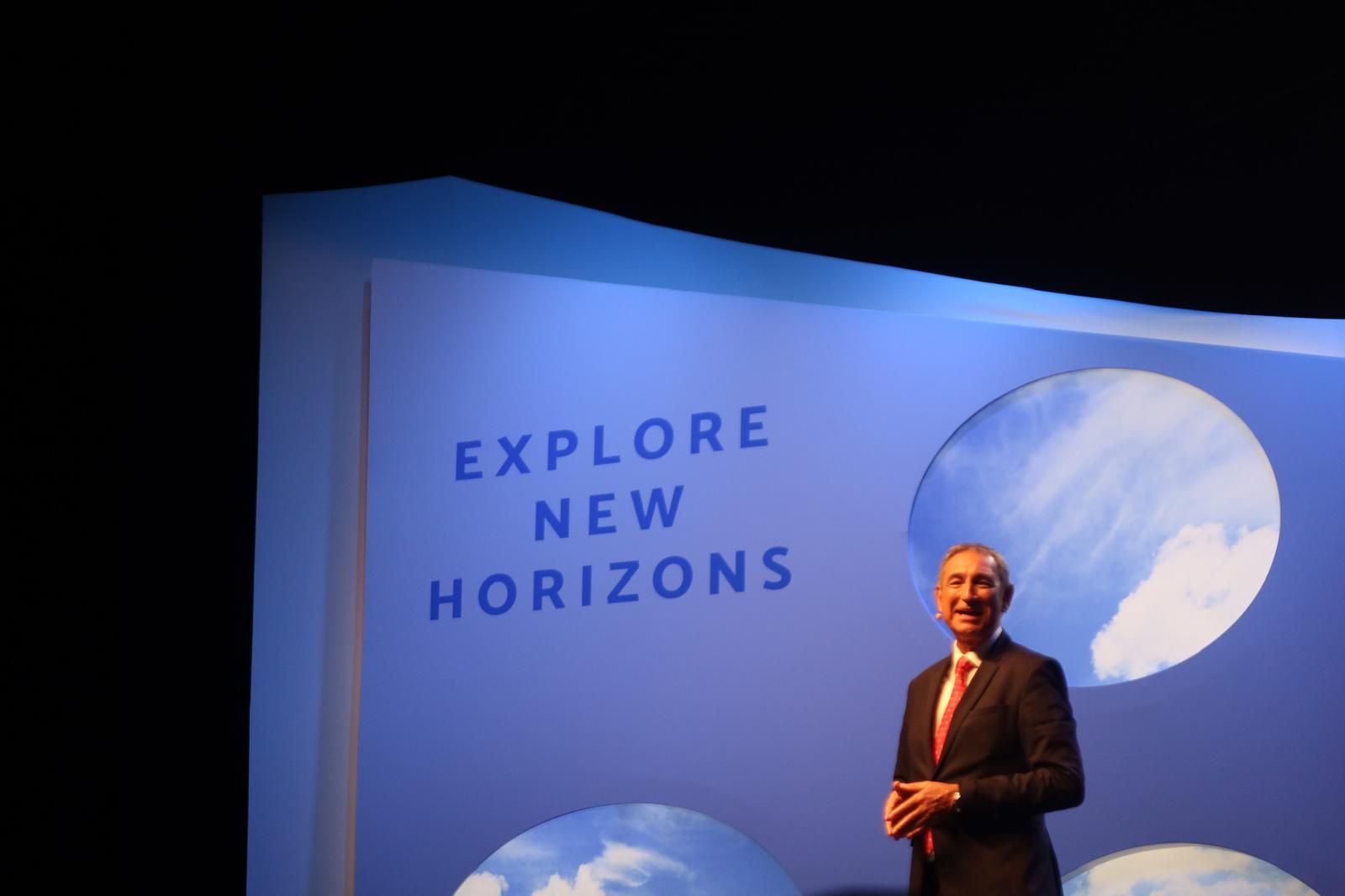
TFWA President Philippe Margueritte took the stage on day one of the 2025 TFWA Cannes World Exhibition & Conference to deliver a state of the industry address. Considering shifting consumer expectations and evolving market dynamics, Margueritte offered his perspective on duty free and travel retail's current position, outlined its strategic priorities and analyzed future growth opportunities.
"This year, we’ve elevated the experience with over 1,000 sqm of new space, welcomed more than 29 boats, planned knowledge-rich workshops, and extended additional time for private networking events, and all this within the premises of the exhibition," said Margueritte to a packed audience stage.
He addressed the mood in the room, acknowledging both excitement and tension. “From the stage, I can already feel your enthusiasm, but I also sense the tension as we face strong international trade and geopolitical headwinds in our industry.
“Business uncertainty is the worst poison for all of us. It delays investments, affects our teams, and consumer spending. While it’s still early to determine who might benefit from tariff shifts or how long these tensions may last, what is undeniable is that we are all affected and must adapt strategically.”
Despite these challenges, he expressed confidence in the sector. “I’m not a blind optimist. But if I had to choose an industry today, it would still be travel retail. Why? Because our fundamentals are very strong. The human instinct to explore is deep-rooted and stands strong in our DNA. Even today, that urge to explore drives billions of people to travel abroad, spending trillions of dollars along the way. And they do that consistently.”
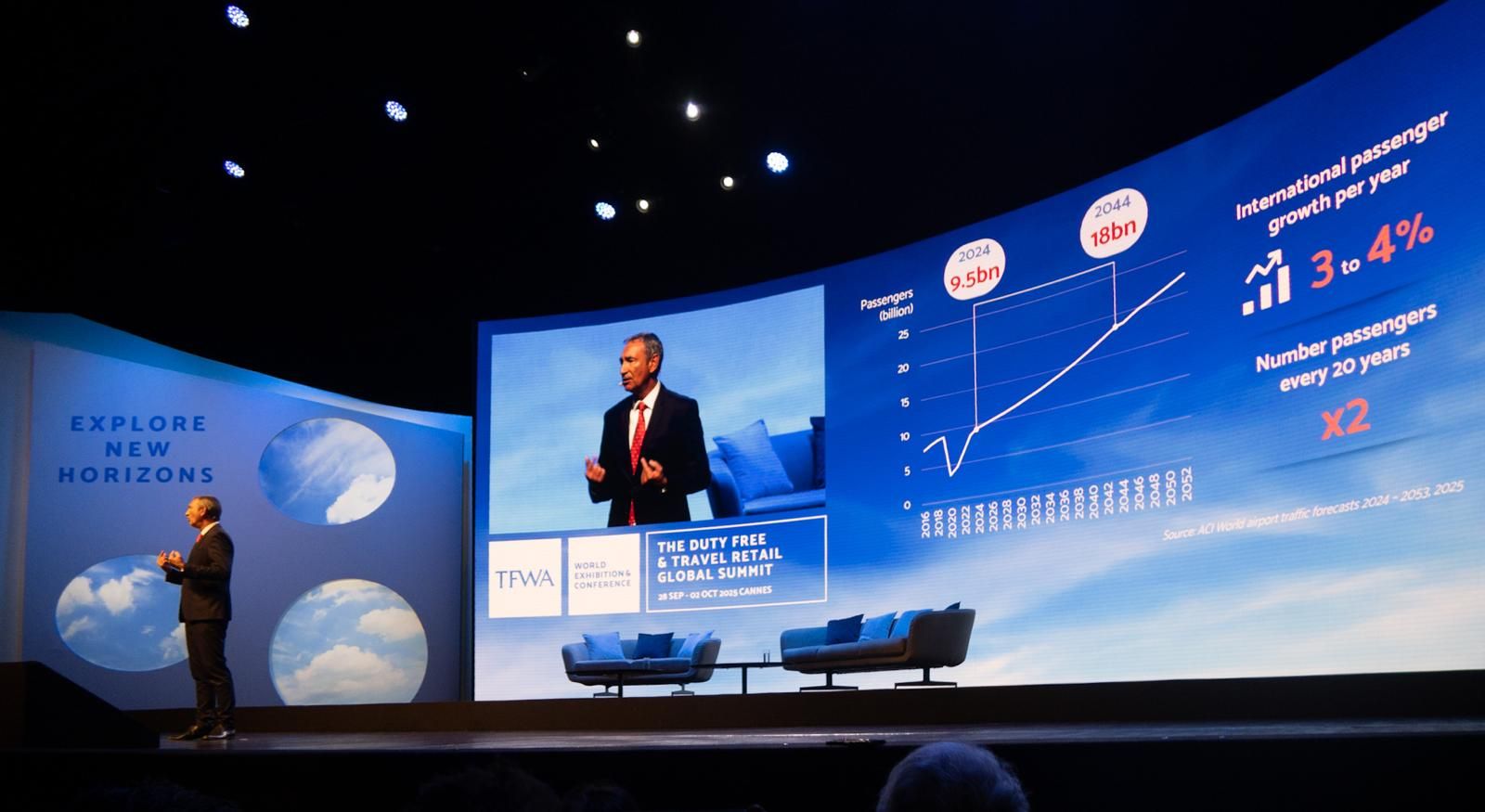
Margueritte highlighted long-term international passenger growth of 3 to 4% annually, noting that passenger numbers are set to double every 20 years. Citing ACI figures, he projected 18 billion passengers by 2045, which is twice the current global population. Boeing and Airbus forecast that more than 40,000 new aircraft will be needed by 2044 to meet demand, while cruise travel continues to grow rapidly, buoyed by new high-capacity vessels.
At the same time, Margueritte warned of demographic challenges. “We must prepare for a decline in travellers that could match the speed of past growth,” citing falling birth rates and aging populations as potential risks to long-term expansion.
Margueritte emphasized two priorities to secure growth: reliable market data to build strategies and conversion rate to deliver the excitement that Gen Z expects. He also called for a retail revolution, noting that airports must adapt constantly to consumer profiles and passenger expectations.
Highlighting innovation, Margueritte introduced the new Innovation Square, a 400 sqm space showcasing technology, retailtainment, sustainability and other industry advancements. He concluded with a focus on artificial intelligence: “AI is not tomorrow; it’s today. It’s not somewhere else, it right here.” Joined on stage by Ameca, a human-like AI, he explored how AI could enhance airport operations and travel retail.
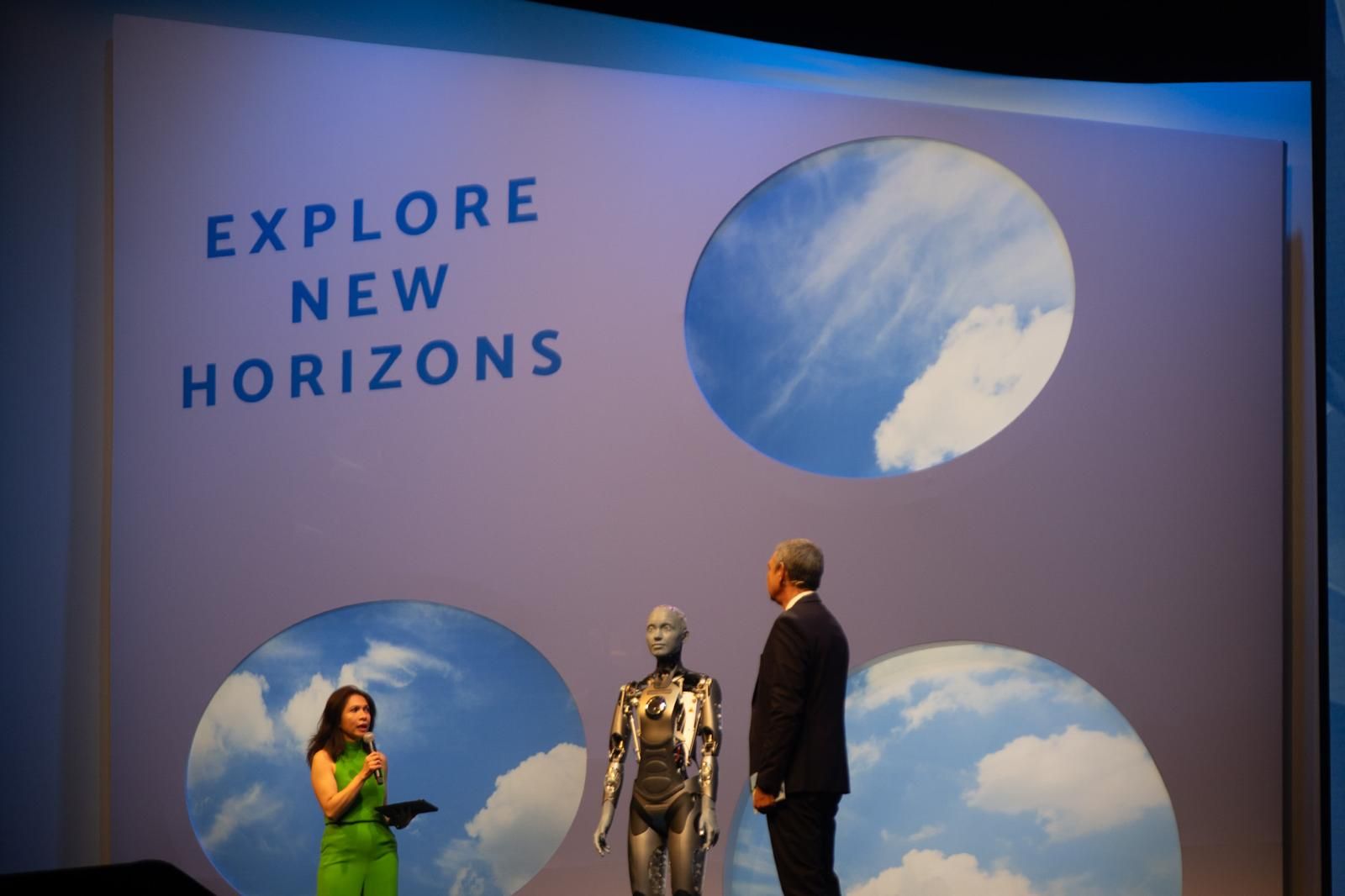
Following Margueritte’s opening address, Rudolph Lohmeyer, Parter at Kearney and head of its National Transformations Institute, provided an assessment of today’s geopolitical and economic realignment. Examining how shifting alliances and fragmented markets continue to reshape the global landscape, he explored the intersection of trade, investment and statecraft. According to Lohmeyer, these changes present an inflection point for industries such as travel retail, which rely on openness and cross-border movement to succeed.
“Trade is not shrinking, but it is being rewired. Globalization is being networked, distributed and transactional,” Lohmeyer said. “Resilience is becoming the real competitive advantage. We need to think less about managing risk and more about adapting in real time.” On artificial intelligence, he added that the primary bottleneck is adoption rather than technology itself.
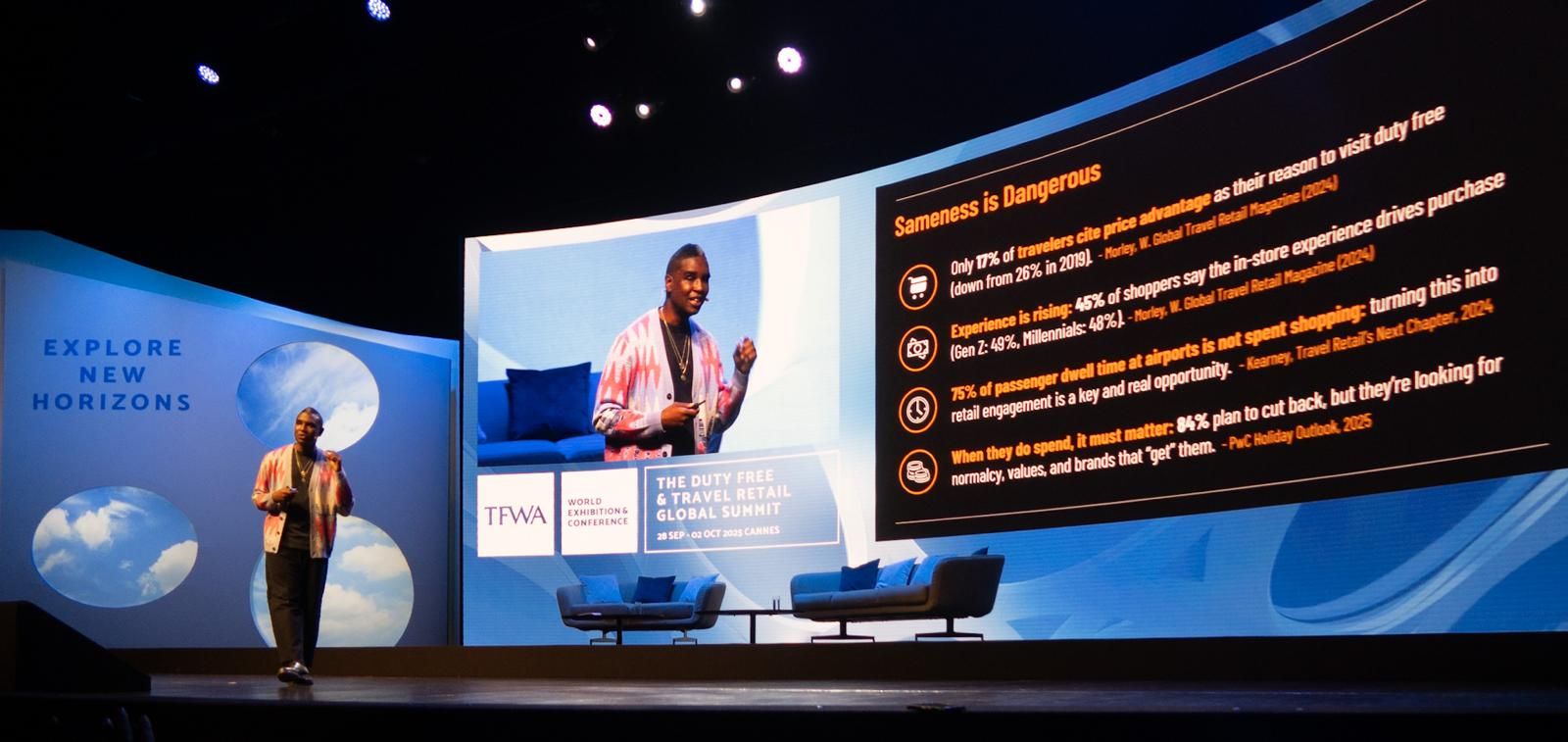
For a look at the consumer conscience, TFWA welcomed best-selling author and co-founder of brand consultancy Conspiracy of Love, Bobby Jones, to the stage. Jones explained how modern consumers are increasingly guided by values as much as price. Providing examples from leading global brands, he noted how businesses that embrace purpose, sustainability and authenticity can forge stronger connections with today’s travelers and get ahead in a rapidly evolving retail landscape.
Focusing on experiences as a key driver of sales, Jones noted that only 17% of travelers cite price advantage as a reason to visit duty free, emphasizing that price is no longer the main motivator. He added that travelers are not just shopping for products, but rather are seeking ways to express identity and want to understand not only what brands are selling but what they stand for.
“Experience fuels transaction. Engagement and commerce aren't separate; they're two sides of the same coin,” Jones told the audience. He further emphasized, “Your values will drive your value to your customers.” Concluding his talk, he stated, “If we can shape the future of travel retail, we can shape the future of travel itself.”
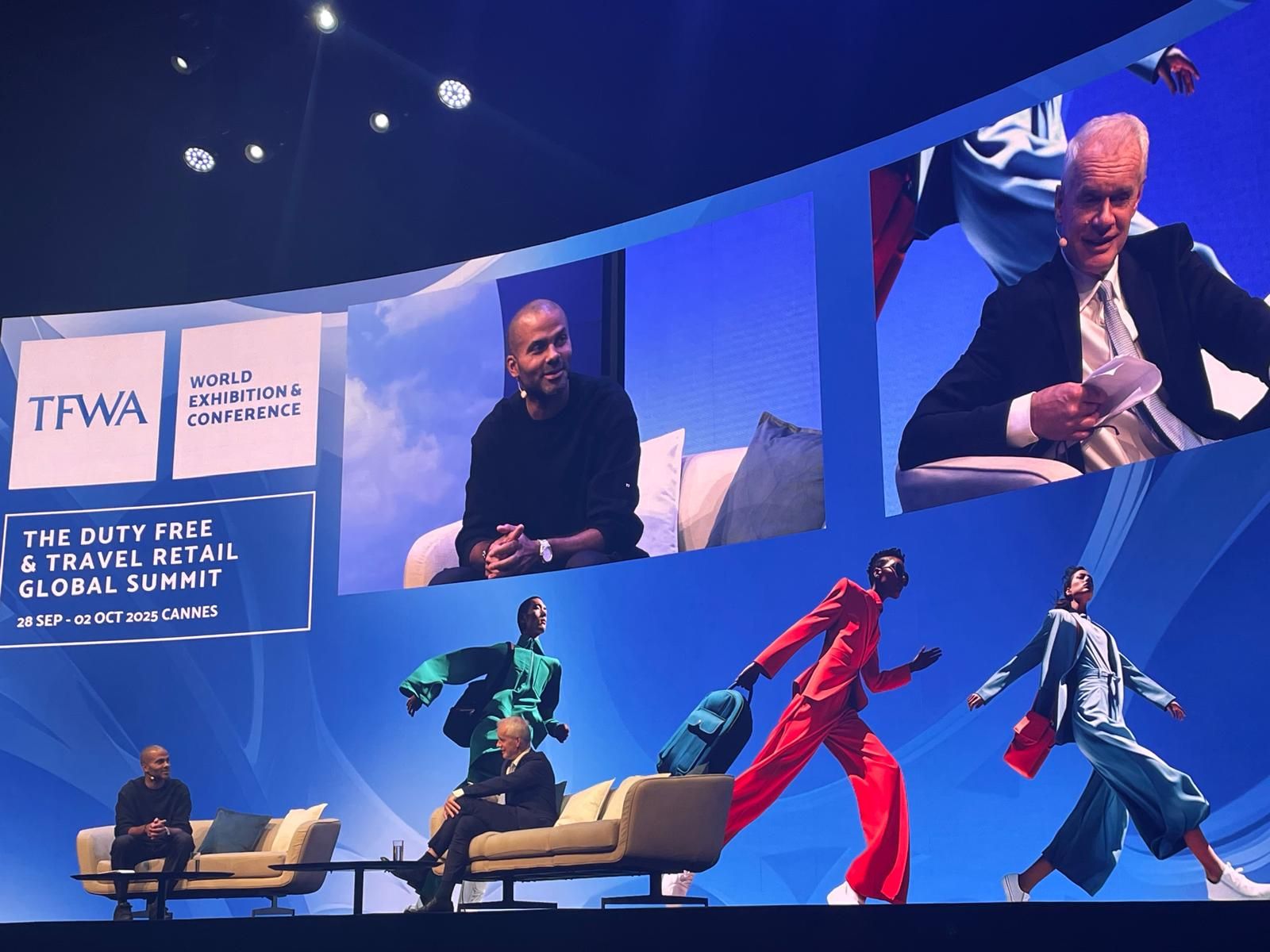
To close this year’s conference, four-time NBA Champion and international sports figure, Tony Parker, impressed audience members with his knowledge beyond the basketball court. Speaking on branding, lifestyle and leadership, the final session revealed how topics such as resilience and teamwork can strengthen the travel retail industry’s connection with changing consumer expectations worldwide.
Emphasizing the importance of human interaction, Parker said, “Human contact may seem a bit old school, but it's essential.” On artificial intelligence, he advised finding a balance, noting that technology should not replace the human touch that creates memorable experiences.
Parker also stressed team-oriented leadership: “Everybody's got their goal, and it's your job as a leader to make sure you put the right person in the right position and let room for those people to grow.” He closed on an optimistic note: “I'm super positive. I believe in human nature, and I believe that if everybody can do their part, slowly but surely, we can create a better life.”




